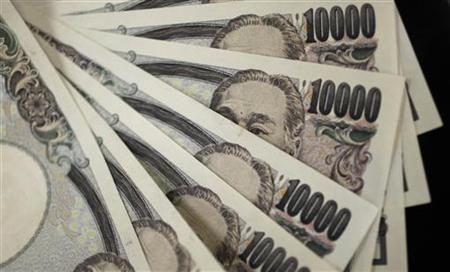Bank of Japan Announces Additional Stimulus to Contain Sudden Rise in JGB Yields

Japan's central bank has announced an immediate fund supply to cool down the government bond market after its yields rose to the highest level in 2013 due to concerns that the US Federal Reserve may scale back its stimulus effort.
Yields on Japan's long-term government bonds (JGB) rose to more than 1% for the first time in 2013 earlier on Thursday, following overnight news that the Fed chief Ben Bernanke is willing to scale back the central bank's bond purchases as early as June, if there is an improvement in the US economy.
The rise in bond yields pulled down the Nikkei stock average, which ended the day at 14,564.3, down 6.8%. The index had reversed from a 2% jump earlier on Thursday.
In order to tackle "the unreasonable increase in the volatility of long-term rates," the Bank of Japan (BOJ) has announced a 2tn yen ($19bn/£12.9bn) fund-supplying operation and two bond-buying programmes totalling 810bn yen.
Following the announcement, the benchmark 10-year JGB yield declined four basis points at 0.845% as of 3pm in Tokyo. June JGB futures ended up 0.61 at 142.51, after a temporary halt to trading following sudden declines.
The BOJ operations came on the same day the ministry of finance performed a liquidity enhancement auction. The bank usually avoids operations when the ministry auctions are taking place.
Despite the operations, analysts expect the market turbulence to continue over the coming weeks.
While launching his aggressive monetary easing programme in April, BOJ Governor Haruhiko Kuroda had stressed that his goal was to lower JGB yields. However, the yields have climbed steadily and the governor attributed the development to the improved economic outlook.
Japan's government debt amounts to more than twice the size of the economy and higher rates on the debt mean that the government's repayment burden would be increased significantly. The government primarily resorts to bond sales to finance its deficits.
© Copyright IBTimes 2025. All rights reserved.




















